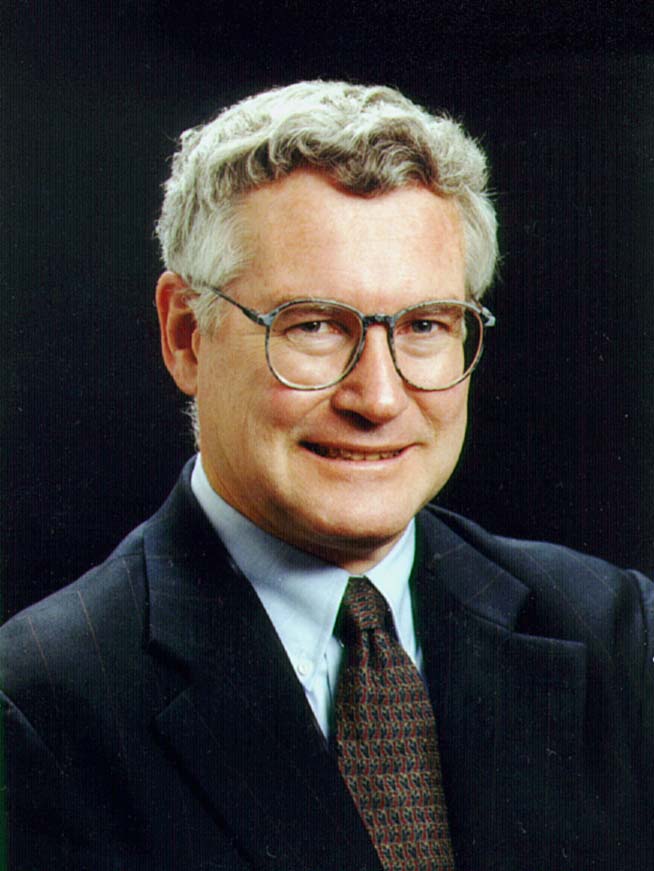As part of the EMC Society’s celebration
of its 50 years of existence, the History Committee of the EMCS
has been reviewing past Newsletters and other Society material
for interesting and informative aspects of the Society’s
past. One of the areas investigated was the origin of the major
awards of the EMC Society. In a previous issue of this Newsletter,
the origin and history of the Richard R. Stoddart Award was reviewed
and reported.
In this issue, we are examining the Laurence G. Cumming Award.
Laurence G. Cumming Award for Outstanding
Service to the Society
The Laurence G. Cumming Award is named after Laurence Gordon Cumming,
an early and strong influence on the formation of the EMC Society.
The award is given annually “to recognize the outstanding
service of an EMC Society Member in contributing to the administration
and overall success of the Society.” The prize is a beautiful
bronze plaque. A member can only win the award once. Only one
award is given each year.
It was first presented in 1979 to Leonard W. Thomas, Jr. who was
secretary of the EMC Society from 1966 – 1981. Recent winners
have included:
2003 – Heyno Garbe
2002 – Elya Joffe
2001 – David Staggs
2000 – Andrew Drozd
1999 – Motohisa Kanda
1998 – Kimball Williams
1997 – Mike Hatfield
Background of Laurence Gordon Cumming
He was born in 1902 and was one of the early pioneers in radio
broadcasting. He died in 1973 and the age of 71.
He retired from the United States Navy and joined the Institute
of Radio Engineering (IRE) as Technical Secretary. He became an
Associate Member in 1927, a Senior Member in 1946, and he was
elected a Fellow in 1966. He became a Life Fellow in 1967.
As Technical Secretary of the Institute of Radio Engineering (IRE)
Technical and Professional Groups from 1946 to 1962, he was instrumental
in organizing the Group structure of the Institute of Electrical
and Electronic Engineers (IEEE). He was involved with the administrative
duties of 25 Technical Committees. He attended meetings in New
York and in other cities to accomplish his duties. His responsibility
grew to include 32 professional groups and required attendance
at technical and executive meetings of these groups.
In 1960, his title was changed to Professional Group Secretary.
Following the merger that created the IEEE in 1963, Laurence served
the IEEE as Field Secretary for two years.
He was also secretary of the Joint Technical Advisory Committee
from 1948 to 1965.
The success of the technical professional group organization of
the IEEE is in a large part due to the dedicated service of Larry
Cumming in assisting in the organization of each group and in
taking a concerned interest in the continuing success of the group.
He was mentioned in the first EMC Newsletter (The Professional
Group on Radio Frequency Interference Newsletter – Number
1 – January 2, 1958) as being a significant contributor of
time and effort to get the Professional Group on RFI organized.
He attended Administrative meetings of the Professional Group
on RFI in their early years to assist in their administrative
decision-making duties.
He attended the 1962 EMC Symposium (Fourth National Symposium
on Radio Frequency Interference), held in San Francisco, and accepted
a Certificate of Appreciation on behalf of Rexford Daniels, who
was unable to make the symposium.
He was a member of the committee of the 1968 IEEE Symposium on
EMC held in Seattle, Washington; he was involved with the publicity
of the symposium. He was the Chairman of the Publications Committee
of the 1968 EMC Group.
He was also a member of and active on the EMC Society Administrative
Committee from 1968 through 1970.
The Laurence G. Cumming Award of the EMC Society is awarded for
“outstanding service” to the Society by one of its members.
It is intended for a member who has had a long-term service record
to the Society as a reminder of Laurence Cumming’s long-term
service to the Professional Group on RFI. EMC
|
|
|
 History
Committee: The Origin of Major EMC Society Awards
History
Committee: The Origin of Major EMC Society Awards